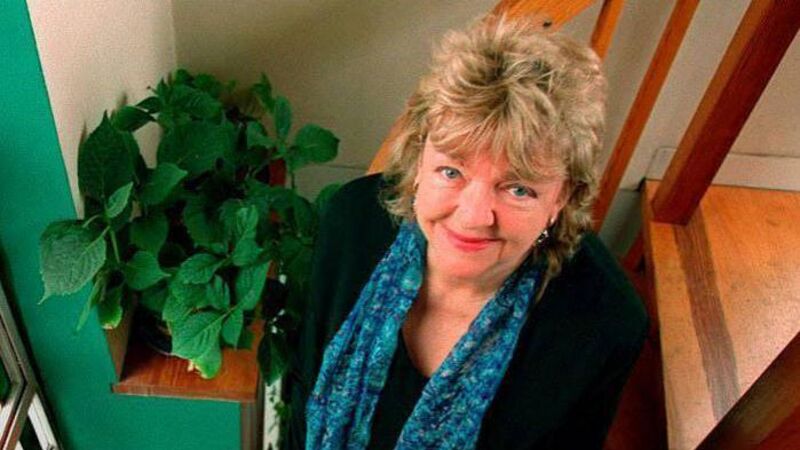Wise and warm Maeve Binchy's recipe for a full, satisfying life...

Maeve Binchy, who died ten years ago, was a great standard bearer for women in journalism and writing, says Colette Sheridan.
Maeve celebrated the ordinary, elevating the everyday snippets of conversation she overheard into perceptive stories that enthralled with their insights, humour and telling details.
And she wasn’t afraid to write about the dark and murky aspects of women’s lives, tackling, for example, abortion and domestic abuse.
She described herself as “a quiet feminist” and, as journalist and broadcaster Olivia O’Leary said in the documentary, the most interesting and “radical” part of the Irish Times was the women’s pages when Maeve edited them.
Appointed women’s editor in 1968, Maeve was in that important job at a time when Irish women were beginning to grapple with throwing off the shackles of the Catholic Church.
But Maeve didn’t rant and rave in newsprint. Rather, she wrote with gentle wisdom - and humour. She was brilliant on the British royal family, writing colour pieces on that arcane institution.
When she was covering Princess Anne’s wedding, she wrote that the Queen looked “unhappy” and Princess Margaret looked like “a lighting devil” with a cross expression on her face.
Apparently, the letters pages of the Irish Times were full of people giving out about Maeve’s irreverent coverage. She just dismissed these whiners as “West Brits”.
Two journalist friends of mine wrote letters to Maeve looking for advice on how to get into the newspaper industry when they were in their early twenties. She wrote back with her tips.
The bottom line for Maeve was just to keep writing. And she wrote with speed, saying that if she was to reread her copy, she’d never stop revising it.
The impression given was that she dashed off everything, from newspaper articles to novels, without sweating it or spending hours navel-gazing before committing to paper. But her work is “deceptively literary”, said writer John Connolly.
However, that didn’t strike the snooty brigade, who looked down on Maeve’s writing because it was popular.
When she published her first novel, Light A Penny Candle (which garnered a record-breaking advance of £52,000), she was walking into the Irish Times office one day when she was stopped by a woman on the street. The woman said she had just read Maeve’s novel.
“Well, thank- you,” Maeve replied. “I hope you enjoyed it?”
“To be perfectly honest with you, no, not really,” was the withering reply.
“Why was that?” Maeve politely probed.
“Well, when I finished it, I thought, sure, I could have written that myself.
“But you didn’t, did you?” said Maeve.
It was a killer riposte, but uttered in Maeve’s typically light way.
When she was working full-time as a journalist, she would get up very early in the morning, giving herself two hours to write fiction. What kept her going was the thought of the launch party she would throw for herself to welcome the book into the world.
Not only was Maeve sought out by aspiring journalists and creative writers, but she was also treasured as a source of eminently good sense when it came to living a good life.
“The whole art of life is knowing the right time to say things,” she said.
To equip oneself for a satisfying life, she advised: “Learn to type. Learn to drive. Have fun. Write postcards (letters take too long and you won’t do it; a postcard takes two minutes.) Be punctual. Don’t worry about what other people are thinking. They are not thinking about you. Write quickly. (Taking longer doesn’t usually make it better.) Get up early. See the world. Call everybody by their first name, from doctors to presidents. Have parties. Don’t agonise. Don’t regret. Don’t fuss. Never brood. Move on. Don’t wait for permission to be happy. Don’t wait for permission to do anything. Make your own life.”
She said that she doesn’t have ugly ducklings turning into swans in her stories.
“I have ugly ducklings turning into confident ducks.”
That says it all. Confidence and a willingness to learn makes for a happy life.







 App?
App?




